Win Win (2011)
/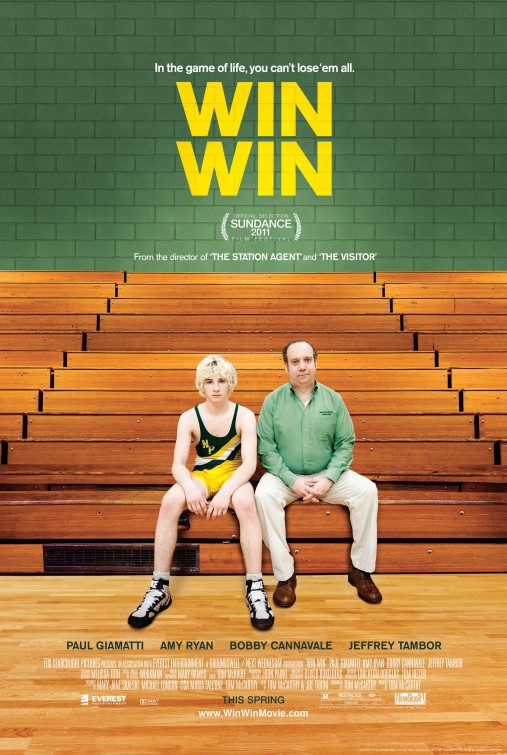
Win Win is a traditional indie comedy. It follows rather typical indie movie characters through a standard indie movie plot. It’s good, but not because of the story or some of the underdeveloped characters, but mainly because of the incredible acting. Paul Giamatti is amazing and, well, everyone else is too. But the story moves along such conventional paths and especially the ending is resolved much too easy. Also, the character of Jeffrey Tambor, as funny as he is, has no back story at all and only shows up to be funny. On the other hand, Kyle (Alex Shaffer) is a very well-written and acted character that keeps most of the movie going. Thomas McCarthy is both a great writer and director and you see that in most of the scenes, even if others don't work or feel hokey. Anyway, I really liked the movie despite its flaws and I want to take a look at how it depicts the average life of common people.
Mike Flaherty (Paul Giamatti) is our protagonist and the first fifteen minutes of the movie show him living a decent life, family with two kids, job as a lawyer, high school wrestling trainer, and not being very happy. The first scene shows him jogging in the woods, but he is surpassed by two other joggers, so he stops and sighs. It’s a bit over the top, I think, but it makes his character’s position clear very easily. He is not able to keep up in life. We see him with his family and at his job and it’s the same everywhere. He is not unhappy per se, but you can see that he’s completely stressed out. Just look at him smoking cigarettes in secret, that tells you everything you need to know. It’s not surprising that he has an anxiety attack when he’s jogging with his friend Terry (Bobby Cannavale), which, to the movie’s credit, is never explicitly stated as the cause for his breakdown. Mike explains that he doesn’t know how to pay the bills, but that’s it. It is not really necessary to explain more, since so many people know exactly how he feels and probably understand why he doesn’t talk to his wife about it. It is so common that you don’t want to bother anyone else with your problems. Jackie (Amy Ryan) seems to be more determined, but also very tense. In both you can see our society working its magic.

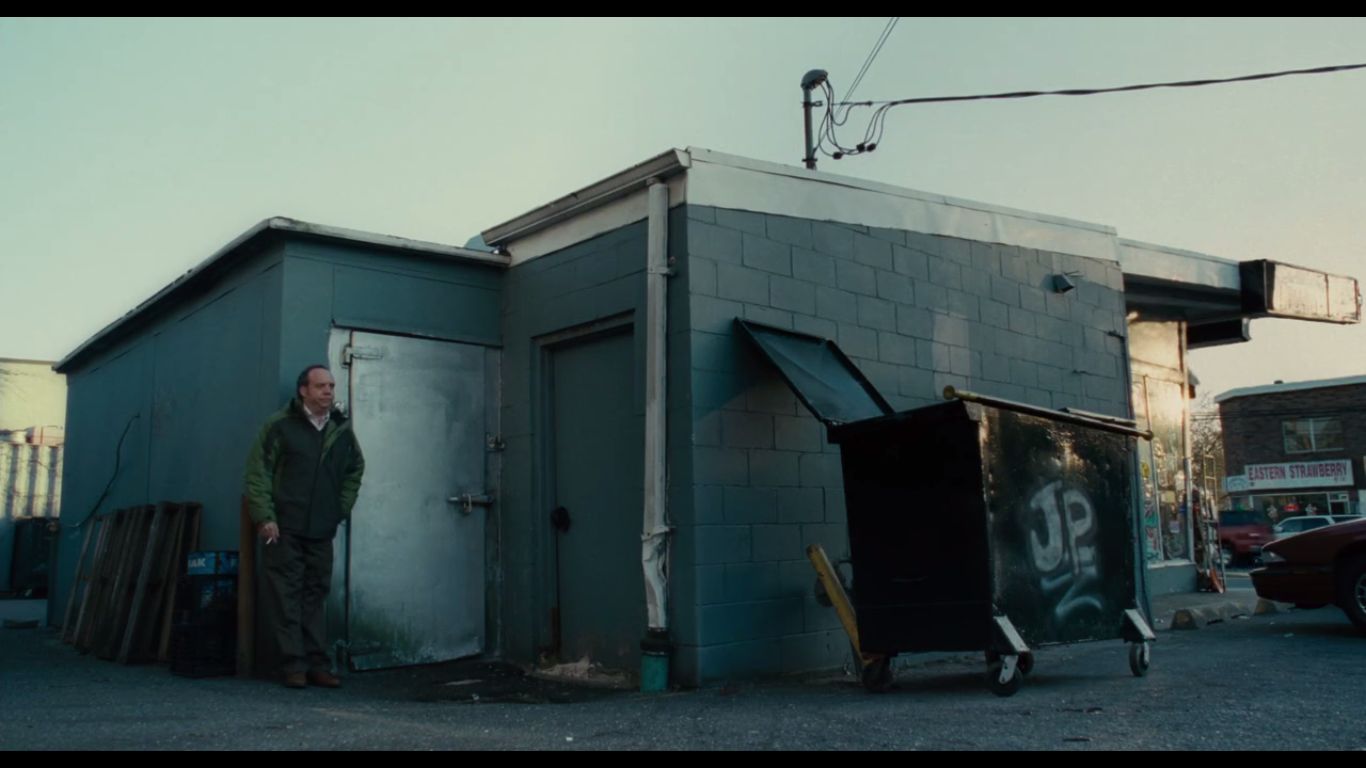
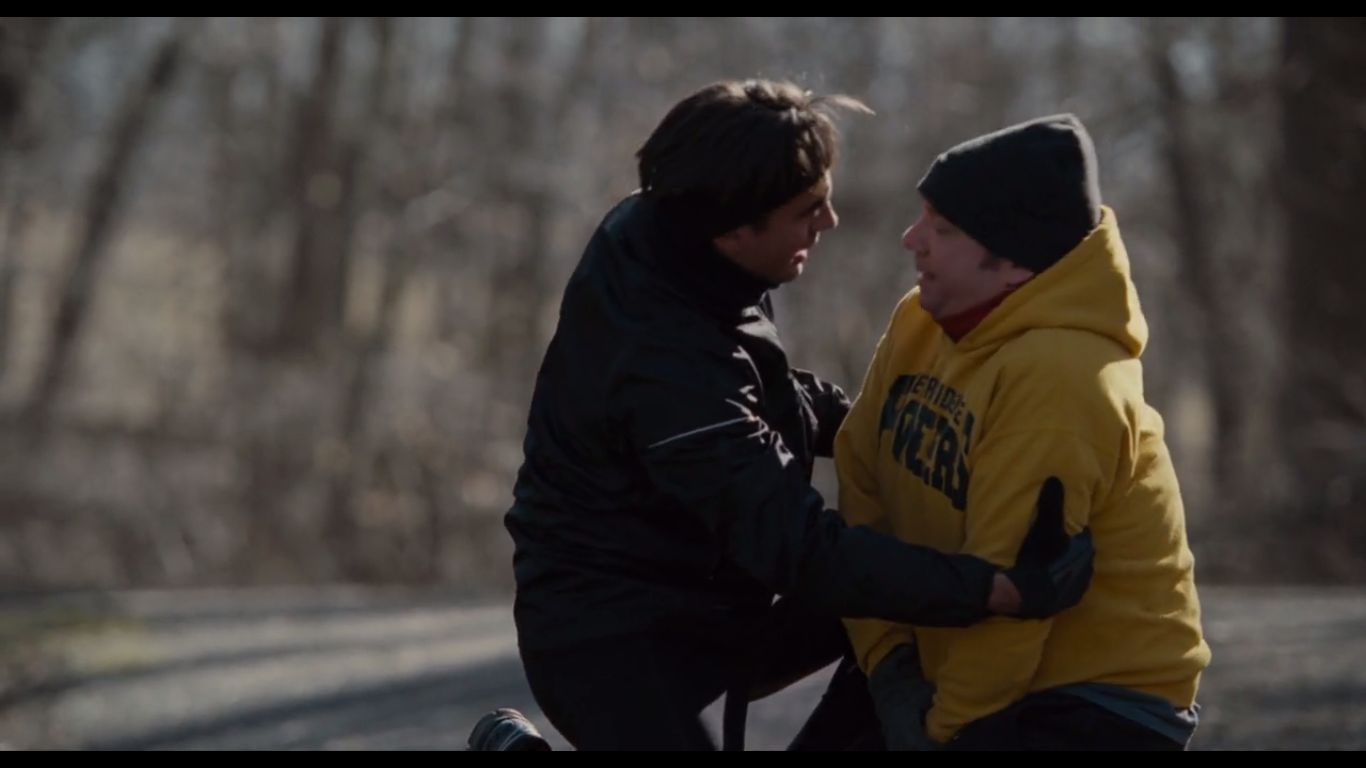
Society challenges Mike (and everyone else) with several problems. The key thing is money and it’s not so much capitalism but just the day-to-day struggle to subsist that becomes so obvious in the movie. Again, Mike is not a bad or lazy person, it just is really hard to get along, to bring the money home, to sustain the family. The anxiety comes from the constant expectations, from trying to keep up. Mike doesn’t want to be rich, he wants to survive. And society doesn’t help him. He is all alone with it.
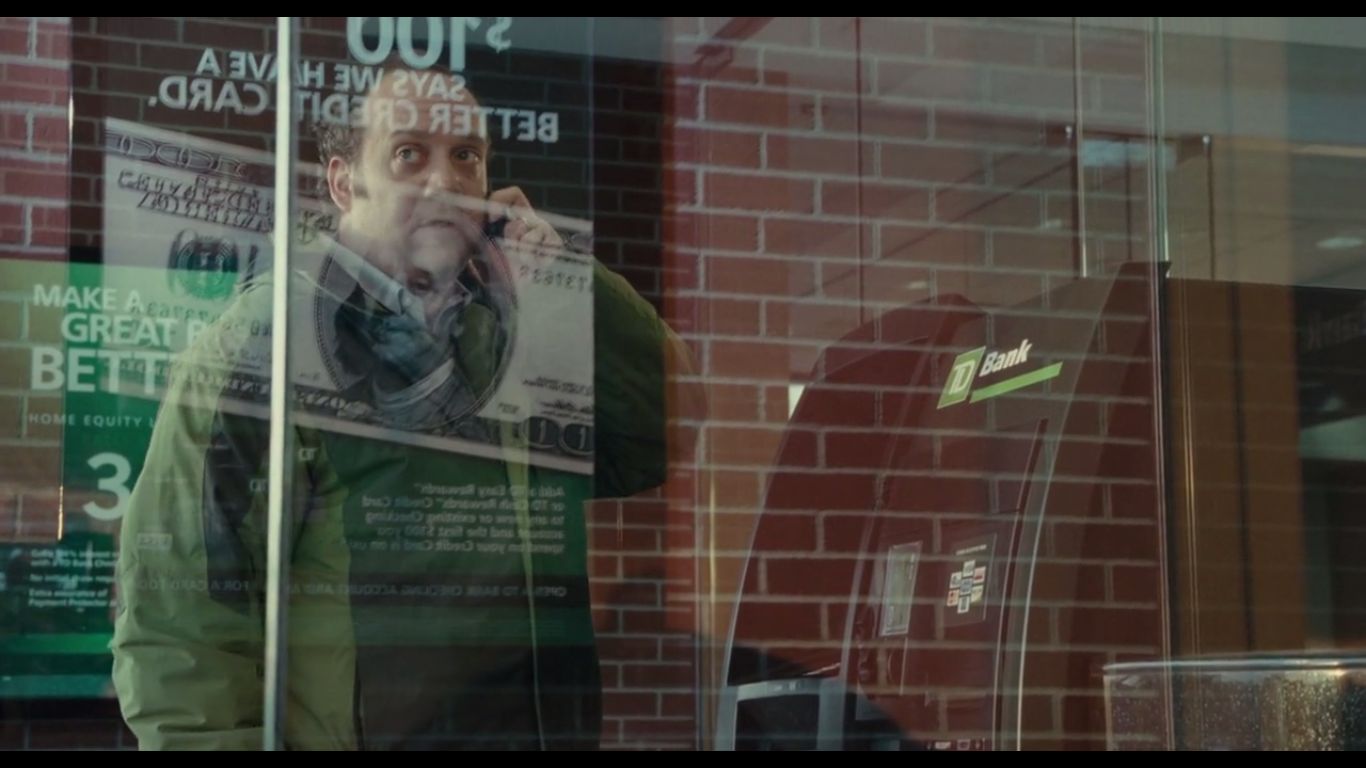
There is another scene that brings all of these ideas home. Mike and Kyle walk home after a training session, in which Kyle taught the others more than Mike ever could.
Mike: Let me ask you something, Kyle, what’s that like to be as good as you are. How does that feel like? Kyle: I don’t know. I guess it just feels like I’m in control. Of everything, you know? Mike: Yeah, I do. Must be nice. Kyle: It is.
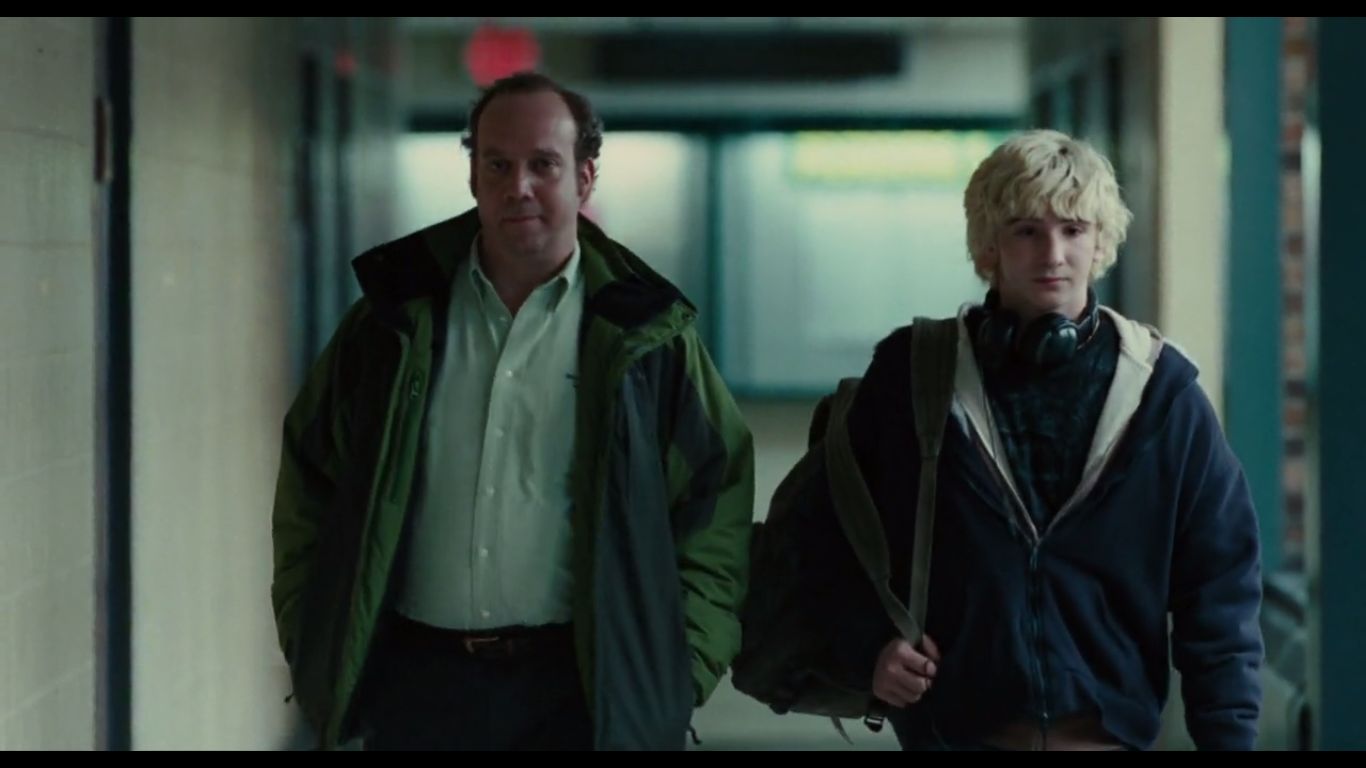
Look at Mike’s face. Paul Giamatti puts in all the misery he feels about that thought. Control? We are controlled by our parents, by our teachers, by our bosses, by the media, by expectations. Which in turn make us completely helpless and having no control over our lives, but yearning for it all the time. There is a reason why power is so addictive and seductive, because it promises control. Of course we are able to control our lives but our culture suggests that we don’t or that we have to do this and that first and then comes the next thing and so on and so on. It never ends and one day we feel like Mike and there are bills to pay and a tree to cut down and your team is losing and you avoid your wife a little and people pass you by on the jogging path. And we wish things could solve so easily as they do in Win Win, but that normally doesn’t happen and we just keep on jogging or we break down.

